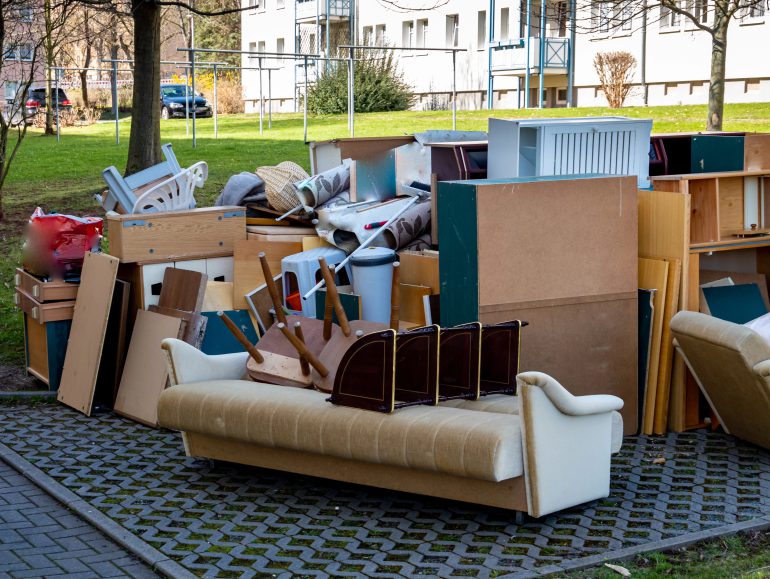Bulk trash pick-up policies in Amsterdam are set to change in 2026. The city currently allows bulk trash to simply be placed outside for pickup. Residents don’t need to make appointments to have large items such as old sofas and tables removed. Starting next year, the city plans to implement new rules requiring residents to either make an appointment to have bulk trash collected or to take it to a municipal waste disposal centre on their own. Although the changes are set to get underway next year, city officials plan to implement them gradually and in phases to ease the transition.
Amsterdam is actually a bit behind most other large cities in the Netherlands when it comes to bulk trash collection policies. Of the ten largest municipalities in the Netherlands, Amsterdam is the only one where residents can dispose of bulk trash by leaving it on the street without making an appointment to have it collected.
The new waste management plans for the city were announced earlier this year and were developed partly in response to concerns about the costs associated with the current system, which city auditors have identified as too expensive. The city hopes to reduce the costs associated with bulk trash pickup by pivoting to an appointment-based policy.
Many are concerned that the transition won’t go smoothly. Some members of Amsterdam’s city council have raised concerns about the city’s preparedness and whether such a fundamental change in residents’ behaviour and expectations can occur so quickly. ‘It requires a radical change in behaviour. Where does the city get the idea that people will now hop on their bikes to take their sofa to the trash?’ suggests Jim Haijen of the SP in an article published in local newspaper Het Parool.
Both the VVD and PvdD have suggested that the city’s waste management policies should be in good working order before moving forward with sweeping changes likely to make trash collection more complex for the city’s residents. Concerns have also been raised by D66 about trash issues becoming more challenging at the beginning of the transition – a possibility acknowledged by the responsible alderman, Hester van Buren, who suggests there will likely be a few bumps along the road as the changes are implemented and the city’s residents become accustomed to working within the new framework. ‘It certainly won’t always be painless, and we expect some inconvenience,’ says Van Buren.
This won’t be the first time the city has experimented with appointment-based trash pickup – the municipality attempted a similar project about 20 years ago, which led to increased amounts of trash on the streets. To keep things manageable this time, Van Buren plans to look into placing cameras in areas where trash is frequently dumped and to increase enforcement in problem locations. The city also plans to work closely with its various districts to ensure the process goes smoothly. ‘We’re going to do this in close consultation with the districts. It will cause inconvenience, but we have to get through it,’ suggests Van Buren.
While the changes may cause a bit of upheaval at first, city officials suggest an appointment-based bulk trash pick-up system may ultimately have several benefits, including making trash disposal easier. Appointment-based systems often provide residents with more options when it comes to days on which trash can be disposed of, freeing people to choose the day on which they wish to have large items picked up instead of needing to keep them at home until the next regularly scheduled trash day. The new system may also be beneficial when it comes to sustainability, as it allows trash to be separated and recycled more easily.
Appointment-based trash collection policies are already the rule in select areas of Amsterdam, including Watergraafsmeer, the city centre and Weesp, but the full transition is likely to take several years. ‘We’re going to implement it in a way that ensures we’re always fully prepared,’ says Van Buren.
Written by Lorre Luther
